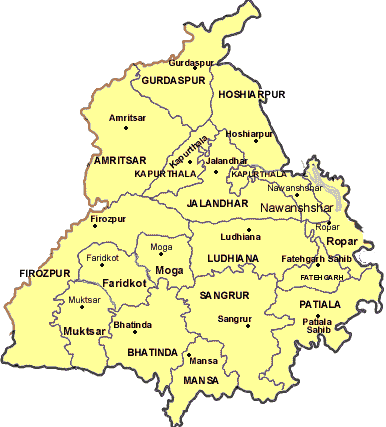“Blight” may play spoilsport for farmers'' hope of good crop in Punjab
 Amritsar, Aug. 31 : Punjab farmers were full of optimism of harvesting a bumper crop of paddy despite a delayed monsoon, but now they fear crop damage due to attack of “Blight”, a bacterial disease.
Amritsar, Aug. 31 : Punjab farmers were full of optimism of harvesting a bumper crop of paddy despite a delayed monsoon, but now they fear crop damage due to attack of “Blight”, a bacterial disease.
Worried farmers allege that the agriculture department is not guiding them how to protect their crop from Blight.
However, at several places, the farmers, who had transplanted paddy, which was in good shape earlier, seem to be fighting a fast losing battle because of the widespread attack of “Blight”.
In various affected villages in the border districts of Amritsar and Gurdaspur, the farmers today estimate nearly 50 percent of damage to paddy due to “Blight”, if it’s not controlled in time.
“The disease appeared as yellowish green stripes running from tip downwards and the affected leaf started drying from the margins. Since most of the farmers are unaware about the remedies so agriculture department should come forward to educate the farmers to tackle this problem,” said Jagdev Singh, one of the farmers.
Mangdev Singh, Sarpanch (village head) of Chiina Pati Village said, “Blight has dashed our hopes. We were expecting very good returns from paddy. In all the 500 acres of village paddy was transplanted. “Blight” attack has started in patches. If we fail to control, this could cause damage of al the crop here.
Singh said that they have contacted the department. Though the Agricultural Department accepts the damage to crops, it is not prepared to quantify it as yet.
In Amritsar district alone, of the nearly 183,000 hectares of land, Basmati was transplanted in about 90,000 hectares of land and in the rest of the farming land other variety of paddy was transplanted.
According to Gurdeep Singh, an Agriculture Development Officer, the disease has been noticed in all varieties of paddy grown in the areas of border belt.
“Since the disease develops more in high humid conditions, farmers should not allow stagnation of water in the fields. Farmers should not spray pesticides to control the disease, as these are not effective against it,” said Gurdeep Singh. (ANI)